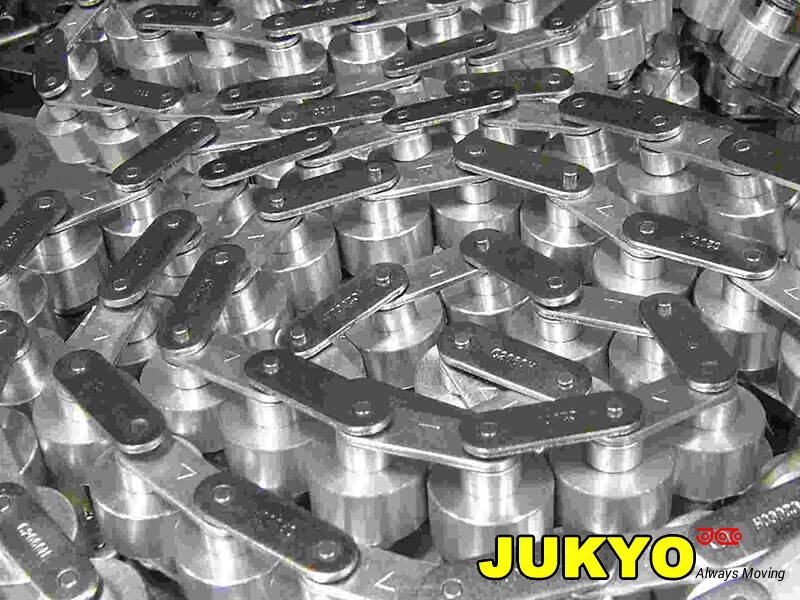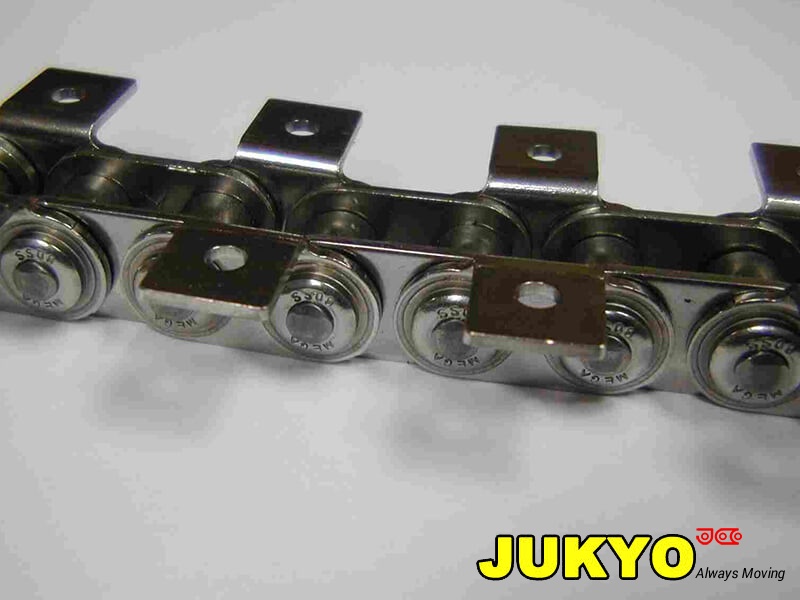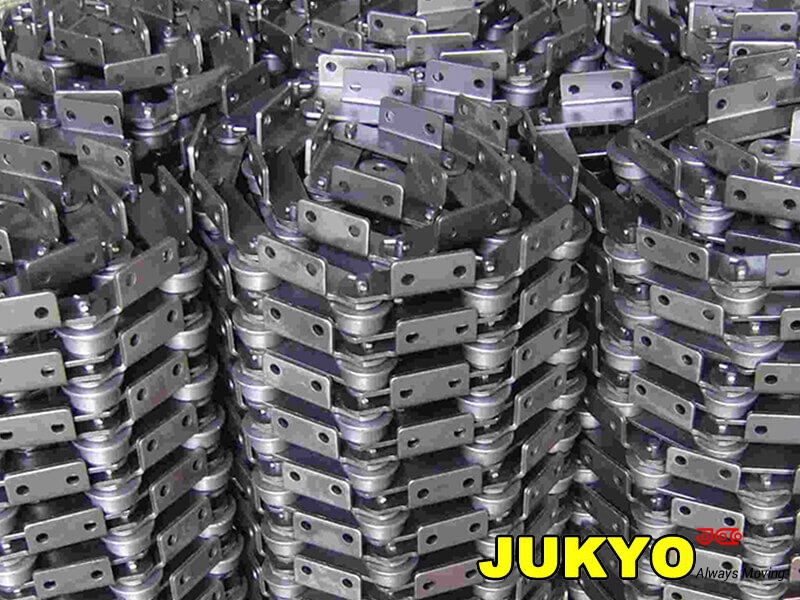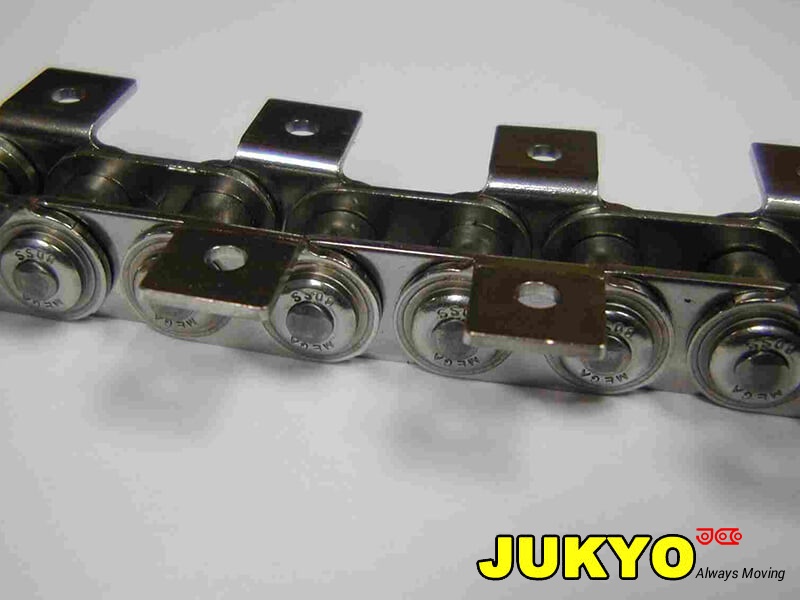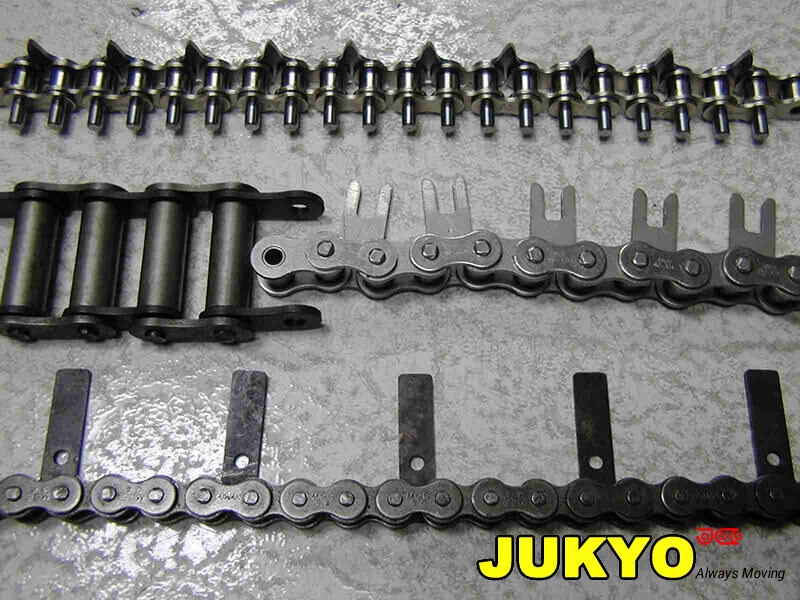Roller chains are crucial in various industrial applications due to their durability and versatility. These interconnected metal links with rollers engage with sprockets in mechanical chain drive systems, primarily used for power transmission and conveyance in machinery. This ensures smooth and efficient operation between two or more shafts.
Here’s a breakdown of its key components and how it works:
Components:
- Chain Links: These are the individual components that form the chain. Typically made of steel, they consist of two plates connected by rollers.
- Rollers: These are cylindrical components that ride on the teeth of the sprockets. They reduce friction and wear.
- Sprockets: These are toothed wheels that engage with the chain. They are used to change the direction of motion and to control the speed of the chain.
- Pins: These are the connecting elements that hold the chain links together.
Types of Roller Chains
There are several types of roller chains, each designed to meet specific industrial needs:
- Standard Roller Chains: These are the most common type, used in a wide range of applications from bicycles to industrial machinery.
- Double Pitch Chains: These chains have a longer pitch, making them ideal for applications requiring slower speeds and longer distances.
- Heavy-Duty Chains: Built for high-load applications, these chains offer enhanced strength and durability.
- Stainless Steel Chains: Perfect for environments where corrosion resistance is crucial, such as food processing and chemical industries.
To ensure the longevity and optimal performance of roller chains, regular maintenance is essential:
- Lubrication: Regularly lubricate the chains to reduce friction and wear.
- Inspection: Periodically inspect the chains for signs of wear or damage.
- Tension Adjustment: Ensure the chains are properly tensioned to prevent slippage and excessive wear.
Applications of Roller Chains
Roller chains are used in various industries due to their reliability and efficiency:
- Automotive Industry: Used in engines and transmission systems.
- Agriculture: Essential in machinery like harvesters and tractors.
- Manufacturing: Integral to conveyor systems and assembly lines.
- Food Processing: Stainless steel chains are used to prevent contamination and withstand cleaning processes.
Maintenance Tips for Roller Chains
Choosing the Right Roller Chain
Selecting the appropriate roller chain for your application involves considering several factors:
- Load Requirements: Determine the load the chain will need to handle.
- Environmental Conditions: Consider factors such as temperature, humidity, and exposure to chemicals.
- Speed and Distance: Choose a chain that can operate efficiently at the required speed and distance.
J-King International (Brand: JUKYO™) – Taiwan Top Roller Chain Manufacturer
For over five decades, J-King International has been a leader in the roller chain industry. Their brand, JUKYO™, is synonymous with quality and innovation. J-King offers a wide range of roller chains designed to meet the demands of various industrial applications. Their commitment to excellence ensures that each chain is engineered for performance and durability, making them a trusted choice for businesses worldwide.
Choosing JUKYO™ roller chains means you are prioritizing long-lasting performance, even in the most challenging situations. At J-King International, we offer a range of options, from standard roller chains to customized solutions, all crafted with our deep expertise and dedication to delivering outstanding products that will surpass your needs.
